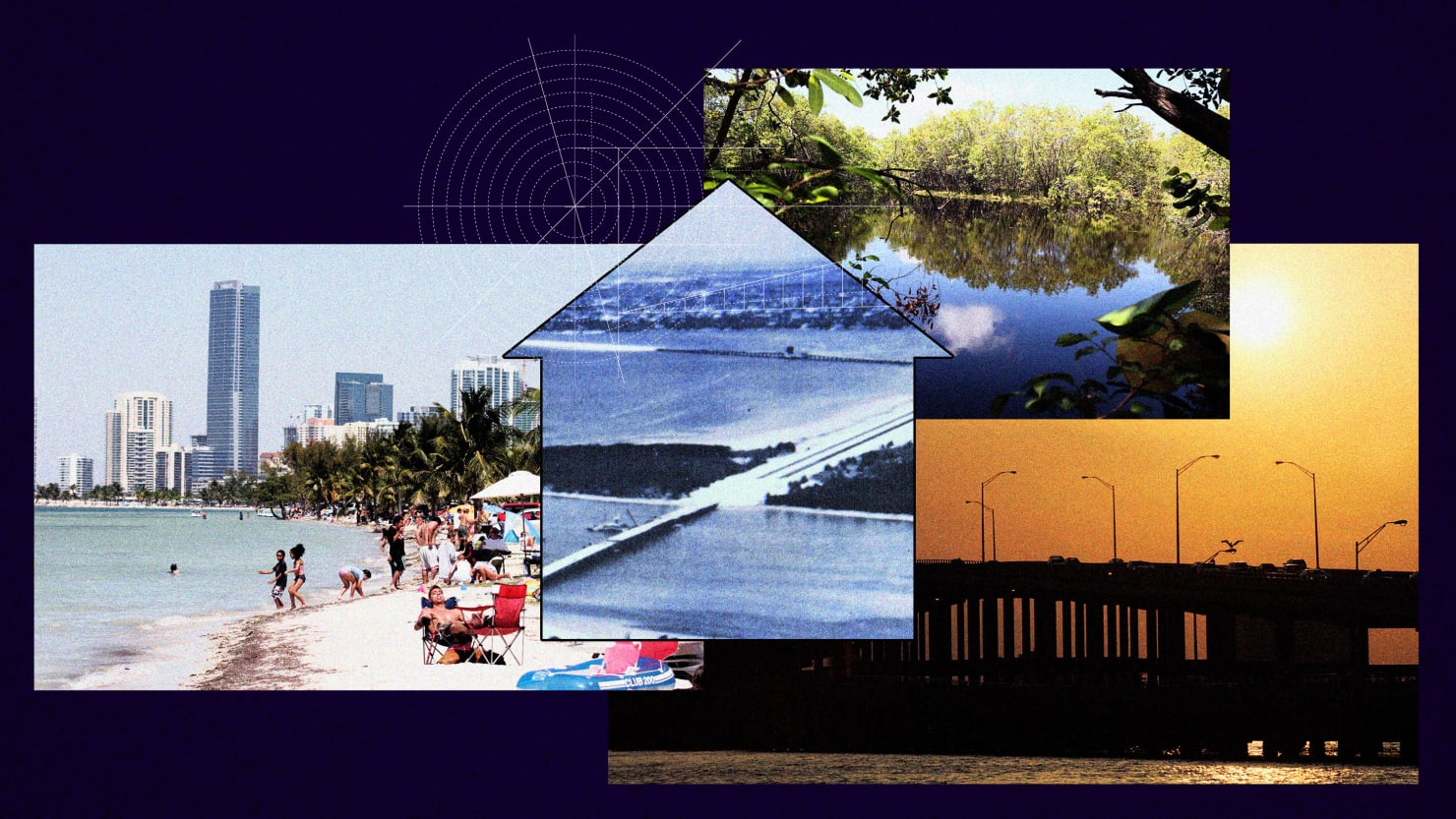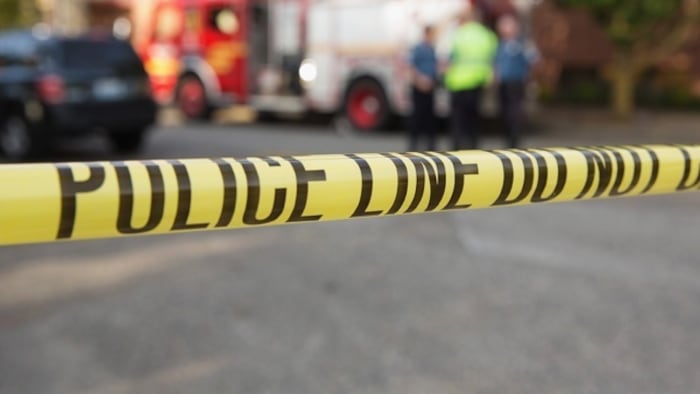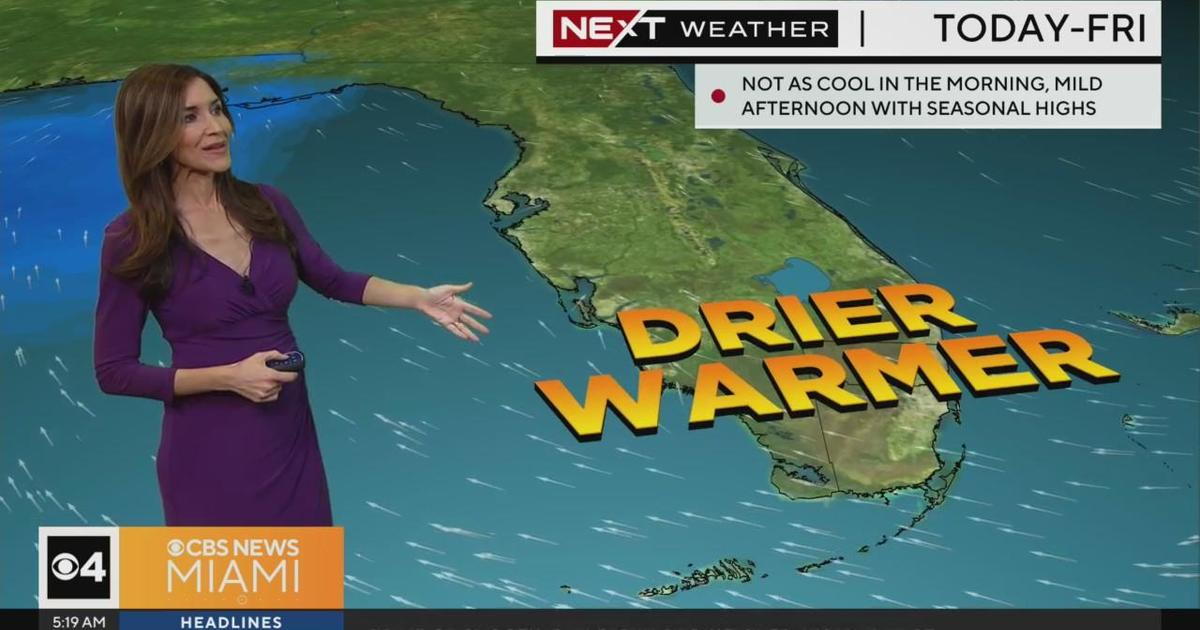Miami Is Tearing Itself Apart Over Bonkers Plan To Move Homeless to Hurricane-Prone Island Virginia Key
On Thursday night, it seemed there was no more exclusive place to be in Miami than the District 7 town hall Zoom chat room.
As local officials, scientists, and advocates spoke during the one-hour conversation, Miamians were furiously typing their thoughts on what has quickly become the biggest topic of conversation in the area: the under-the-radar approval to pursue a pilot program for a homeless encampment in Virginia Key.
“This will be a bigger mistake than the Metro Rail system,” one commenter posted in the chat to over 200 residents at 7:10 p.m.
While the full effects of the niche insult can only be enjoyed by anyone who has suffered through Miami’s illogical two-line rail system, it speaks volumes about the public sentiment around the plan to erect up to 100 “tiny homes” on a historic barrier island with a stained racial history. The encampment plan has spurred outrage from every type of Miamian: environmentalists who are worried about destroying the island’s already endangered ecosystem, outdoor enthusiasts concerned about ruined recreational activities, and homeless advocates sounding the alarm about the lack of infrastructure in the area off Rickenbacker Causeway, which could leave relocated people without transportation, sewage systems, and even access to food.
Not to mention that Virginia Key is just yards away from two of the wealthiest neighborhoods in the city—Key Biscayne and Fisher Island, a members-only island only accessible by a boat whose former residents include Oprah Winfrey, Derek Jeter, and Mel Brooks.
The comments about the proposal in the District 7 Zoom chat soon took on an aggressive tone. “Are the homeless that are going to be housed illegal immigrants or are we first going to house homeless US Citizens?” one resident commented. After taking some heat from another chat participant, they added, “if we’re putting tax dollars to not even take care of US citizens then we need to refocus altogether.”
“Bad, Bad idea. Bunch of dummies,” a third added.
“These ‘Tiny homes’ would be for rent on Airbnb in no time,” another chimed in as dozens of others flooded the chat.
The Zoom informational about the project, organized by Miami Commissioner Raquel A. Regalado—a Republican whose district includes Virginia Key and Key Biscayne—was just a microcosm of the indignation that exploded in Miami after the motion to pilot the “transition zone” on Virginia Key was proposed in a 3-2 vote last Thursday.
“It’s so ridiculous from every angle.”
Commissioner Ken Russell, who voted against the plan, stressed to The Daily Beast that the idea is not yet officially a reality. In September, it will return to the five-person commission, where logistical information will be presented and can be voted on at any time. Russell added that Miami Mayor Francis Suarez has the “ability to veto any actions by the city commission.”
“It’s embarrassing for the city,” Russell told The Daily Beast about the pilot plan. “It perpetuates this reaction from residents like ‘not here, do it over there.’ It’s not only that this is the wrong location for this idea, but it’s the wrong solution.”
Since last Friday morning, over 13,000 people have signed an online petition against the plan they say was “discretely approved” only “48 hours after notifying the public.” Over the weekend, dozens of residents participated in a “protest paddle” after droves of cyclists held a gathering against the encampment.
The petition also came just days after social media was flooded with screenshots from a City of Miami powerpoint about the proposed encampment for the “chronically homeless.” Online, Miami wasted no time expressing its feelings about the plan—though it did not always seem to focus on the potential social, economic, ecological, and infrastructural problems with the proposal and instead strayed into ‘not in my backyard’-type comments.
“Well there goes Virginia Key,” one individual wrote on Facebook on Tuesday.
“Imagine seeing a homeless encampment from your house,” another added.
In a Thursday memo to the Board of County Commissioners, Miami-Dade Mayor Daniella Levine Cava expressed her outrage over the isolated “proposed homeless encampment” that would be subjected to extreme weather during hurricane season and would pose potential conflicts with an already approved city plan to revitalize Virginia Key into “the Central Park of Miami.”
“A shelter-only zone like the proposed ‘Transition Zone’ will exacerbate the bottleneck that is created when insufficient safe and healthy extremely affordable housing options are available for those experiencing homelessness,” Cava added about the social service implications of the plan in the memo obtained by The Daily Beast.
Not to mention, Cava added, Virginia Key was the first Black-only beach in Miami during the Jim Crow era.
A spokesperson for Cava’s office told The Daily Beast that “the Virginia Key plan is under the purview of the City of Miami….[and] Cava doesn’t oversee city business, nor can she veto city plans.”
Residents and local officials canvassed by The Daily Beast have also expressed outrage at the idea of placing people who experience homelessness on an isolated island that is only home to a magnet public high school and a wastewater treatment plant. The encampment will also be notably set up near several outdoor recreational areas about two miles from the closest bus stop—and six miles from a grocery store.
“The people who voluntarily join this plan will have to walk along the highway to even get to the nearest store or bus stop.”
“It’s kind of insane to get everyone in Miami to agree on something—and everyone agrees this is a terrible idea,” Diana Perez, the director of marketing and operations at Virginia Key Outdoor Center, told The Daily Beast. “People are really mad, man.”
Commissioner Joe Carollo, a Republican, first proposed the idea last October and was met with immediate backlash from homeless advocates. Around the same time, Carollo was also instrumental in the passage of a new ordinance to clear tent encampments—which resulted in an ongoing lawsuit against the city of Miami.
While Carollo did not respond to The Daily Beast’s request for comment, he did defend the plan to the Miami Herald and slammed critiques who have compared the plan to Alcatraz. “No one wants this in their neighborhood, it’s always somebody else’s they want to dump it in,” Carollo told the outlet.
Perez said she first learned about the plans to approve the pilot program early last week and was “shocked” to hear city officials identifying Virginia Key as the “optimal location” for the encampment because it is a “secluded location.”
In the city PowerPoint obtained by The Daily Beast, officials added that in the open field in Virginia Key North Point Park, a survey would be required “for water and electricity connections” and that “all services must be delivered” onsite.
Other possible locations, the PowerPoint notes, were an “already fenced in … large lot” in Little River, a lot in Wynwood, and space near a homeless advocacy group near Overtown.
The proposal provided several options for encampment structures, like a shed-like “tiny home” which would cost about $4,500 per unit, and a dormitory that “can be viewed as a more ‘temporary’ setting than others.”
The open field is also directly across from Fisher Island—where residents in 2020 had an average income of $2.2 million and where the rich will now have an unobstructed view of the encampment. When a reporter called the Fisher Island Beach Club, a private members-only club that rests just across the thin-water cut from Virginia Key, a receptionist said “nothing has gone out yet” in terms of guidance to their guests about the proposed encampment.
“We’re aware of the plan, that’s for sure,” the receptionist added.
Perez noted that the location of the encampment city is also next to the Virginia Key Outdoor Center—which boasts beaches, bike trails, and a summer camp that hundreds of locals and tourists flock to weekly. Now, she said, she has heard from many residents that the idea that dozens of homeless individuals could reside nearby is giving them pause about returning to the barrier island.
“It’s embarrassing for the city. It perpetuates this reaction from residents like ‘not here, do it over there.’ ”
“The plan is supposed to be targeting the chronically homeless population. These are people that are, a majority of the time, adults with some form of substance abuse issues. Mental health issues. These are people that have sometimes been kicked out of housing, whatever the problem may be,” Perez said. “Of course, parents are concerned about sending their kids to a summer camp next door, or even bringing their kids at all for a beach day.”
Andrea Connor also has the same safety concern. A decades-long resident of Key Biscayne, Connor told The Daily Beast that Virginia Key is “a place for families” where she often goes on bike rides. She also stressed her fear that the homeless population would be housed just off the causeway in “camps like the ones from World War II.”
“It’s so ridiculous from every angle,” she said. “You can’t give to someone and take from someone else. If you are giving to the homeless, you don’t take away from families who use the recreational centers. There are tons of other places in Homestead, in west Miami that this could be instead.”
Connor added that her sentiments mirror “everyone she knows in the Key,” and stressed that if the encampment does get built in Virginia Key, she will “not go back like I used to.”
Homeless advocates in Miami are also sounding the alarm over the plan—with some saying that the hasty proposal will upend years of successful work to help rehome across the city. Ron Book, chairman of the Miami-Dade County Homeless Trust, said during the Thursday town hall that this agency does not support the encampment and noted that it did not adhere to federal guidelines.
Key Biscayne Mayor Michael Davey also expressed his anger over the project to The Daily Beast, noting that while he “understands the city is just trying to provide a place for transition for homeless people,” the idea of the camp “right now door” is concerning. “Think about it: the people who voluntarily join this plan will have to walk along the highway to even get to the nearest store or bus stop,” he added. “This is just political theater.”
But while Davey is convinced that this plan will not go through, his mayoral running opponent is not so confident.
“I think ultimately it will probably not happen,” Fausto Gomez told The Daily Beast. “But you can never bank on something not happening in Miami.



